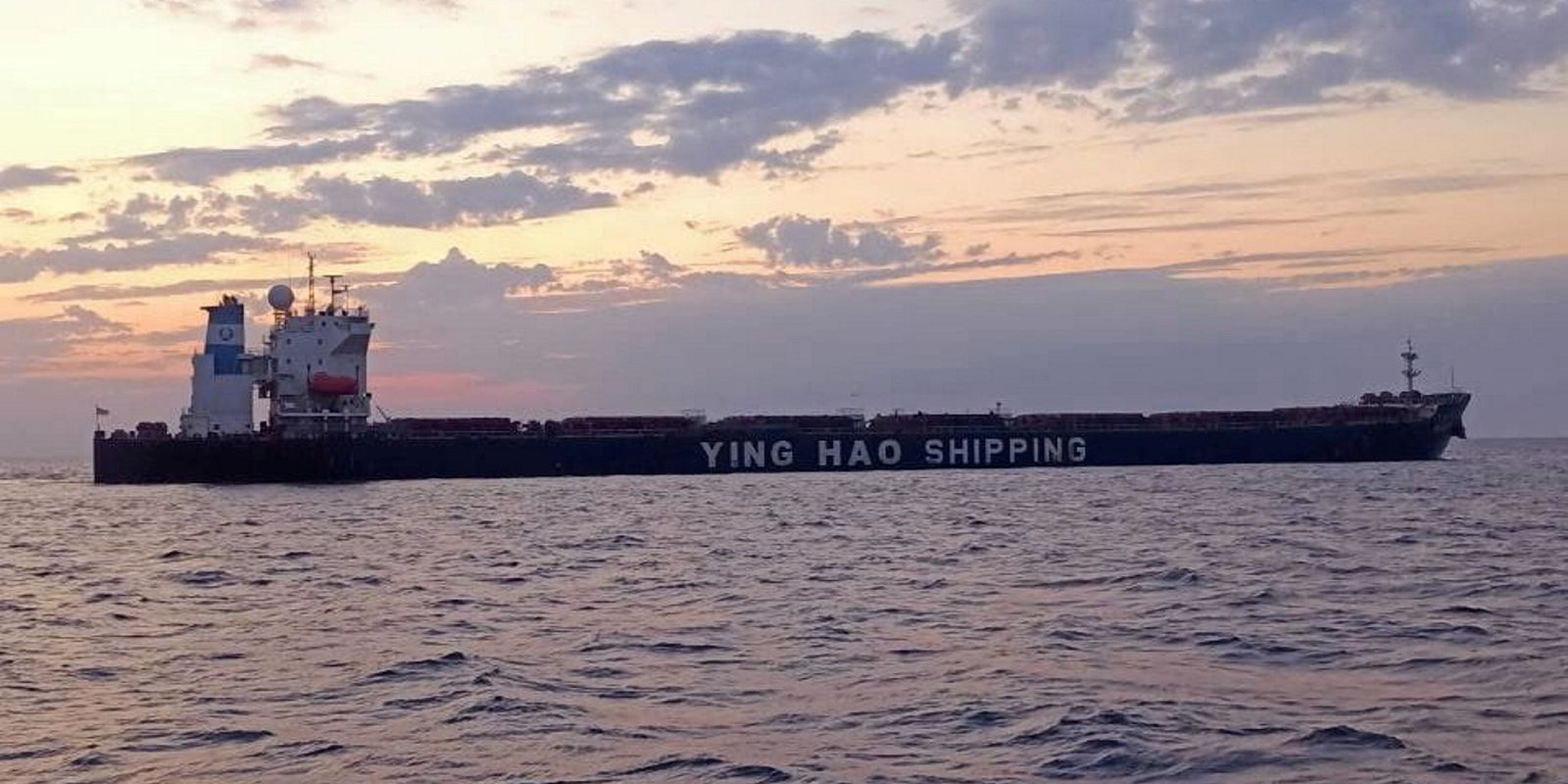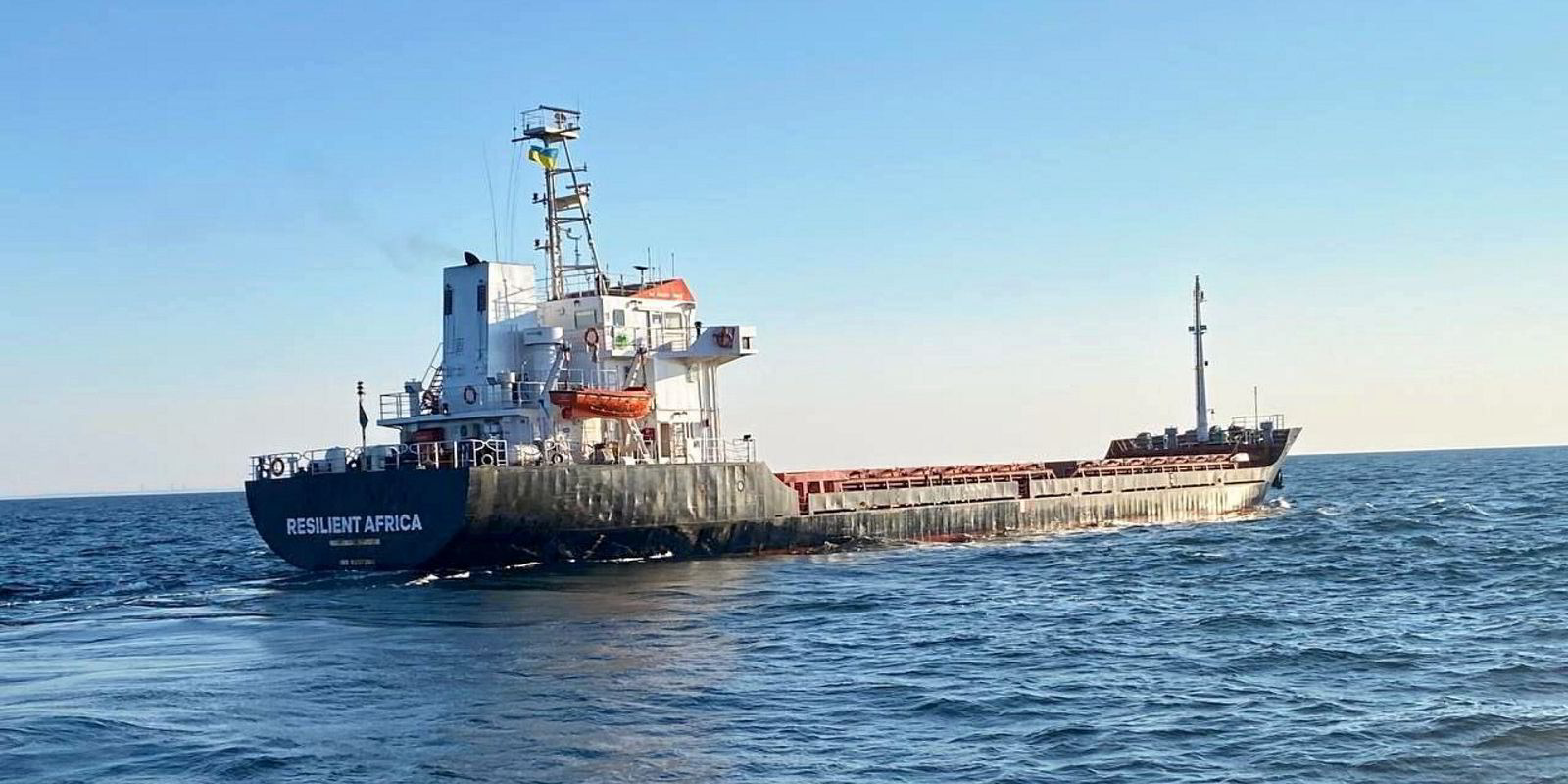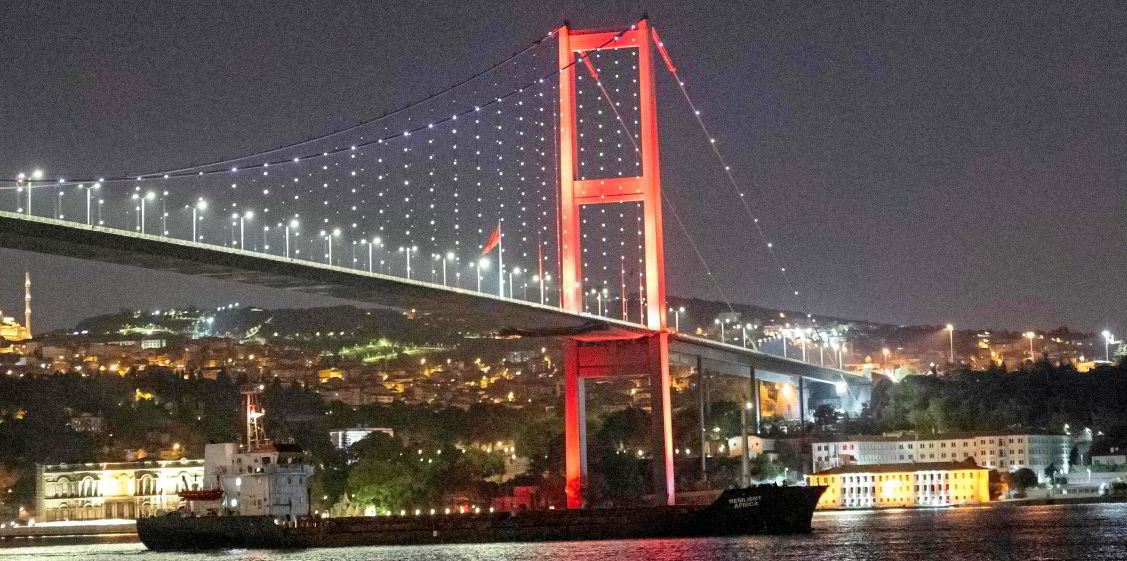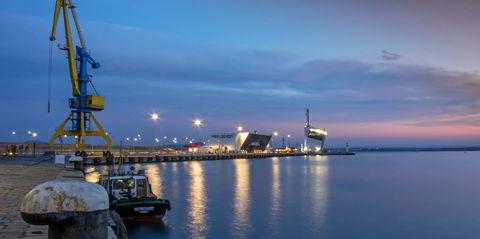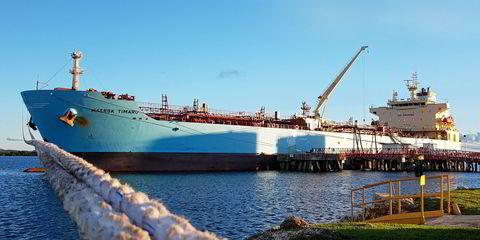For the first time since Ukraine re-opened a corridor for the seaborne export of its foodstuffs in the Black Sea, it has managed to attract a shipowner from Greece to use it.
Evalend’s 28,400-dwt Danny Boy (built 2005) is among a fresh batch of five bulkers that entered Ukraine’s deepsea ports on Sunday, despite the risk of Russian military action in the area.
The group includes a 18,300-dwt pair of cargo ships under the management of Germany’s Blumenthal JMK, the Ida (built 1995) and Olga (built 1996), as well as the Blue Fleet Group’s 32,800-dwt Forza Doria (built 2000) and Lebanon-based Med Sea Co’s 28,700-dwt New Legacy (built 1996).
The five ships will export about 120,000 tonnes of grain between them to Africa and Europe, Ukraine’s infrastructure minister Oleksandr Kubrakov tweeted on X.
If successful, they will bring the number of ships that have completed a round-trip to Ukraine’s partially blocked deepsea ports in recent weeks to 10 bulkers and cargo vessels.
An additional five ships — four bulkers and one container ship — had used the same corridor previously in a one-way trip to flee Ukraine, where they had been trapped since Russia invaded in February 2022.
Gaining traction
The more vessels Ukraine sends through and protects in the corridor, the more it encourages insurers to arrange cover and shipowners to send fresh ships for additional trips.
TradeWinds already reported last week about the marine insurance market starting to gear up to provide war risk cover for Ukraine’s Black Sea grain shipments, despite renewed targeting by Russia.
A Russian missile attack caused extensive damage to the Odesa port last week and possibly also to some tugs docked there.
However, Pivdennyi/Yuzhny and Chornomorsk remain accessible and it seems like it is these two terminals that the fresh batch of five bulkers sailed to over the weekend.
Vessel trackers show the New Legacy docked at the TIS Grain Terminal at Yuzhnyy/Pivdennyi. The other four ships had their AIS signals switched off at the time of writing.
The decision of Evalend principal Kriton Lendoudis to send one of its vessels to the region is particularly intriguing.
Greek owners were the biggest users of the United Nations-protected Black Sea corridor under which more than 30m tonnes of foodstuffs left Ukraine between August 2022 and July 2023 when Russia pulled out of the scheme.
Kyiv has been keen since then to convince Greek owners to start using the new corridor and trust Ukrainian firepower to protect it.
Evalend was a frequent user of the UN-led Black Sea Grain Initiative (BSGI), having sent seven ships in nine journeys to carry Ukrainian corn, sunflower meal and sunflower oil.
Blumenthal JMK was a user of the BSGI as well, but even more so of Ukraine’s new corridor.
Besides its two ships that have made the inbound journey this weekend, Blumenthal JMK sent the Odesa-trapped, 35,000-dwt Puma (built 2017) through the Ukraine-protected waterway a few weeks ago.
China calling
No information is currently available as to what kind of marine insurance the newly inbound vessels have and what charterers have fixed them.
However, brokers believe that China is playing a big role in the new trade.
According to Athens-based Doric Shipbrokers, talk among traders suggests that Chinese interests have made large purchases of animal feed corn in Ukraine over the past two weeks.
“Importers in China have bought around 10 to 12 panamax cargoes of Ukrainian corn for November/December shipment,” Doric cited a Singapore-based trader at an international grains trading company as saying.
The Chinese-controlled, 74,800-dwt Ying Hao 01 (built 2002) is the biggest bulker to have used Ukraine’s new grain corridor so far.
